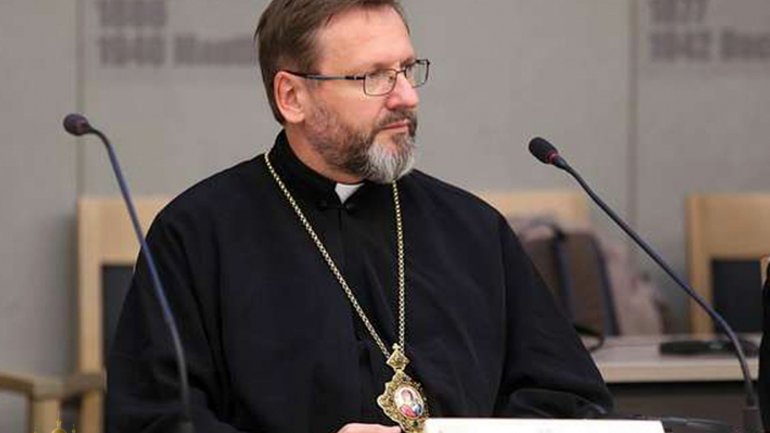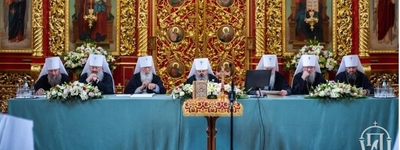Ukrainian Catholics in a Divided America

On 15 January 2021, Ukrainian Greek-Catholic Major Archbishop Sviatoslav issued a statement in support of Catholics in the United States, citing among other things “the extensive division between citizens, the real danger of civil war, or even military warfare.” The statement was prompted by the events of 6 January, when a mob of supporters of President Trump stormed the Capitol in Washington, DC and disrupted the electoral proceedings in Congress. Five people died in the disorders.
Was it appropriate for the head of a church in a foreign country to comment on these events? Were the comments themselves appropriate?
While Major Archbishop Sviatoslav, popularly regarded as Patriarch, does not have formal jurisdiction over Ukrainian Catholics in America, as the earthly head of the Ukrainian Greek-Catholic Church he is the spiritual leader of Ukrainian Greek-Catholics worldwide. As such, he has the right and even the duty to support his people wherever they may reside.
But were Ukrainian Catholics under any threat relating to their religious identity? Like American Catholics as a whole, they were fairly evenly divided in the recent presidential election. The small group of rioters of 6 January had no known connection with Ukrainian Catholics.
One might argue that although neither Catholics in general, nor Ukrainian Catholics in particular, were threatened as Catholics by the Epiphany episode, as American citizens they all were in “real danger of civil war, or even military warfare.” But that was not the case. Certainly any comparison of the current situation in the United States with the events leading up to its Civil War of 1861-1865 – which involved distinct regional interests and the secession of entire states – would be specious. And the record number of private firearms purchases in 2020 did not translate into the formation of a private army capable of military warfare. The failed putsch did not interrupt the election procedure, invalidate its results, or prevent the inauguration of Joseph Biden – incidentally, a practicing Roman Catholic — on 20 January.
Patriarch Sviatoslav’s reference to “the extensive division between citizens,” however, was totally accurate. The principal divide does not run, it is true, between the extremists of the Epiphany putsch and everyone else. It is doubtful that the majority of the 74 million people who voted for Donald Trump, after all, would approve of an assault on the seat of government, even if they do believe that the election was manipulated. Rather, the “extensive division” is between them and the 81 million who voted for Joseph Biden. And while, as noted above, this conflict finds Catholics on both sides, there is one aspect of the divide that concerns them – and Catholic churchmen everywhere – specifically and directly.
The reason has to do with only one part of the Biden agenda. In fact, most of that agenda concerns issues that Catholics, regardless of their party affiliation, agree are important: jobs, health care, racial equality, immigration, climate change and the environment, and so on. Whatever their positions on these issues, on the whole they do not differ markedly from non-Catholics. But there is one set of issues that sets committed Catholics apart from other Americans. It concerns the anthropologically central matter of human reproduction: contraception, abortion, marriage and family. On these complex, difficult, and controversial questions, involving the rights of both individuals and organizations to proclaim and put into practice the ethical requirements of their religion, Catholics and the Biden administration may be on a collision course.
These are not the issues that were at stake in the disputed vote count, the Epiphany putsch, and the presidential succession. But they are issues that the new administration will have to confront. In anticipation of the presidential inauguration, the differing messages from Archbishop José Gómez of Los Angeles, who chairs the US Council of Catholic Bishops, and Blase Cardinal Cupich of Chicago, demonstrate the desire of the Church hierarchy to support the new president on the one hand, and to address their differences with him on the other.
Patriarch Sviatoslav’s statement gave Ukrainian Catholics in the United States warm encouragement at a moment of crisis and uncertainty. But it is not only at such dramatic junctures that they need the advice and support of their spiritual leadership. As American Catholics of all rites enter into dialogue with President Biden’s administration on issues of mutual agreement as well as disagreement, Ukrainian Catholics will look to their hierarchy – in Kyiv as well as Philadelphia – for guidance and leadership.










